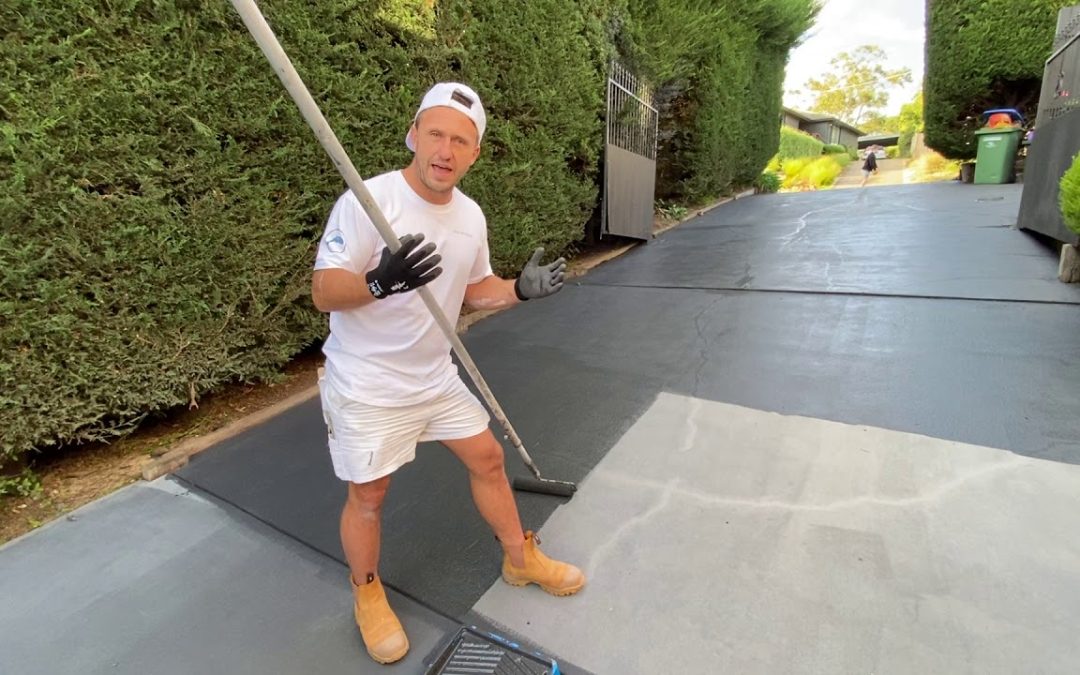Driveway paint is a popular way to give a fresh and updated look to your driveway while also providing a layer of protection against the elements. However, one question that many homeowners have is how long driveway paint lasts. In this article, we will explore the factors that can affect the lifespan of driveway paint and how to extend its durability.
Factors that Affect the Lifespan of Driveway Paint
Type of Paint: The type of paint you choose for your driveway will significantly affect its longevity. The two most popular types of paint used for driveways are latex and epoxy. Latex paint is water-based and tends to last for about one to two years, while epoxy paint is more durable and can last for up to five years.
Quality of Paint: The quality of paint you choose will also impact the lifespan of your driveway paint. High-quality paints will typically last longer than cheaper paints, which may start to chip and fade after just a few months.
Climate: The climate in your area can also affect the lifespan of your driveway paint. Extreme temperatures, humidity, and exposure to sunlight can cause paint to deteriorate more quickly. Areas with harsh winters or hot summers may experience more wear and tear on driveway paint than areas with milder weather.
Traffic: The amount of traffic on your driveway will also impact the lifespan of your driveway paint. If you have a high-traffic driveway, the paint may wear down more quickly due to the constant movement of vehicles.
Surface Preparation: Proper surface preparation is critical to the longevity of driveway paint. If the surface is not thoroughly cleaned and prepared before painting, the paint may not adhere properly and may start to peel or chip.
How to Extend the Lifespan of Driveway Paint
Choose the Right Paint: Choosing high-quality paint that is specifically designed for driveways will help extend the lifespan of your driveway paint. Epoxy paint is an excellent choice for durability and longevity.
Surface Preparation: Proper surface preparation is critical to the longevity of paint. Clean the surface thoroughly to remove any dirt, oil, or debris. Repair any cracks or damage before applying the paint. Use a pressure washer or chemical cleaner to ensure that the surface is free of any contaminants that may interfere with the adhesion of the paint.
Apply Multiple Coats: Applying multiple coats of paint will help to increase the durability of your driveway. Be sure to follow the manufacturer’s instructions for the number of coats recommended.
Allow Proper Drying Time: Be sure to allow each coat of paint to dry completely before applying the next coat. Failure to do so can cause the paint to peel or chip prematurely.
Protect the Surface: Once the paint has been applie, it’s essential to protect the surface from any harsh weather conditions, especially during the first few weeks after application. Avoid parking heavy vehicles on the driveway or using harsh chemicals that can damage the paint.
Regular Maintenance: Regular maintenance is essential to the longevity of your paint. Sweep or wash the driveway regularly to remove any debris or dirt that can cause damage. Avoid using abrasive cleaners that can scratch or damage the surface.
In conclusion,
The lifespan of driveway paint depends on several factors, including the type and quality of paint, climate, traffic, and surface preparation. By choosing high-quality, properly preparing the surface, applying multiple coats, allowing proper drying time, protecting the surface, and regular maintenance, you can help extend the lifespan of your driveway paint. With proper care, your Paint can last anywhere from one to five years or longer.

